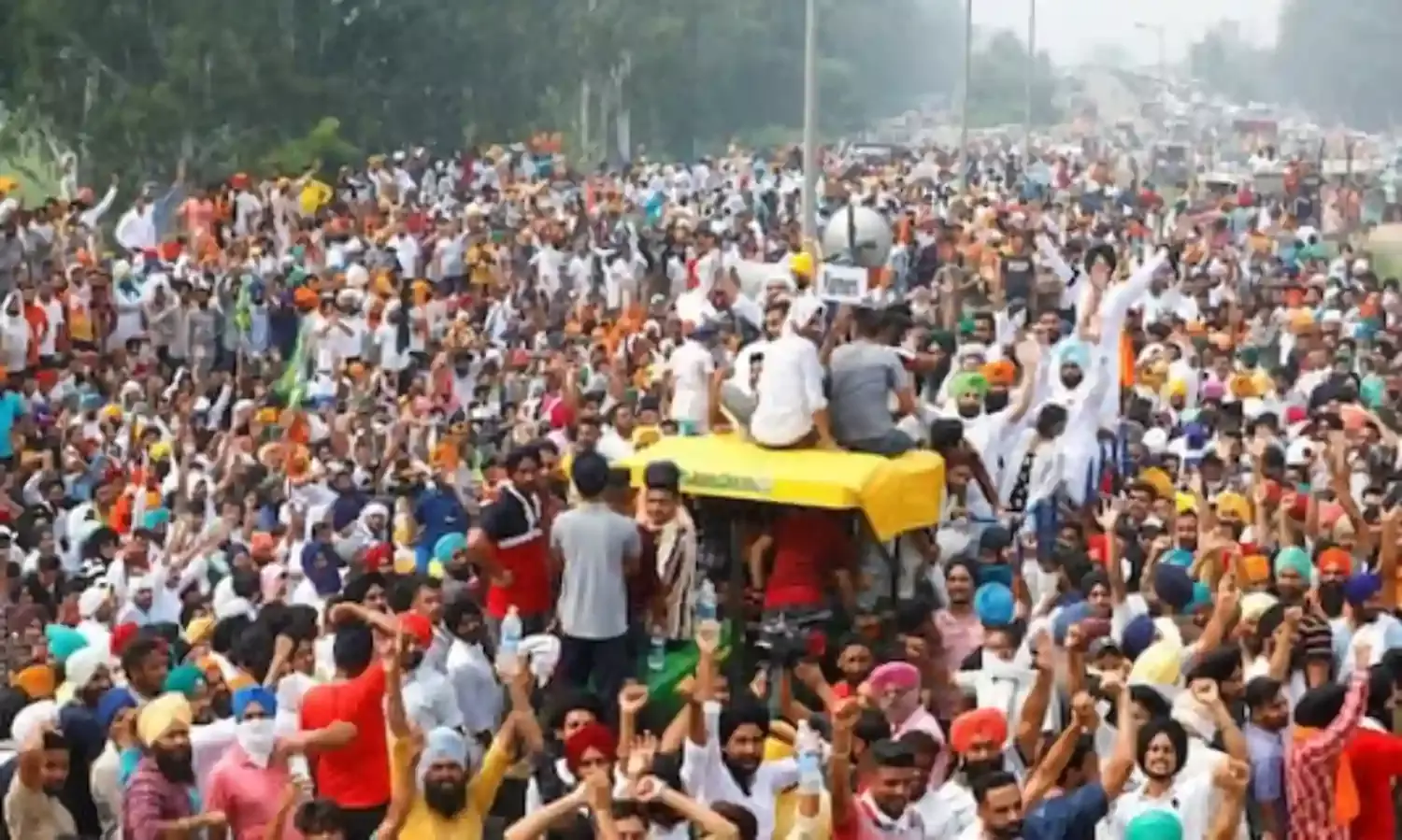Farmers in Punjab Unite Against the 'Corporate Model', See Shades of Colonisation
Political impact of farmers protests
The farmers’ protest against the controversial farm bills brought in by the central government has met been a stupendous success in Punjab. They have scored a first on several fronts and the developments over the last days have been historic, sufficient to give researchers material to analyse in the days to come. But at the same time, the protests have brought Punjab’s politics to difficult crossroads.
Mainly because this has been the first time where there has been a concerted and cohesive attack by the farmers on the corporate model that has dominated India’s socio-economic matrix over the last three decades. Apart from raising the issues directly concerning their livelihood, the farmers across Punjab made it clear that their protests covered the corporate model that is perceived as having eaten into land rights.
The farmers made this evident by laying siege to toll plazas on the highways, the humongous shopping malls and petrol pumps being run by major corporate entities of the country. And that have become the face of the development model being pushed by successive governments.
The question here is that why have the farmers targeted these institutions apart from their rail rook and chakka jams on highways, besides protests at other public places in Covid times.
“The farmers have this notion that the central government only listens to the corporate entities and if they hurt the corporate where it matters, the message would go down shard and strong. They also believe that it is these very corporates who would be grabbing their lands in the days to come. They also know that that the toll plazas are a major source of government revenue and not allowing the staff there to take toll tax from travelers sends a strong signal to the government. The message is clear that the people are no longer in a mood to tolerate the corporate model that has been imposed on them all these years,” according to a Sangrur based agrarian expert who has been constantly interacting with the farm leaders.
It further needs to be pointed out that this has been one of those rare protests not seen for years now, where the farmers got complete support from the folk singers, theatre artists and intellectuals besides the other commoners.
The protests have had a political impact. The regional power house Shiromani Akali Dal (Badal) was compelled to break ties with the Bharatiya Janata Party (BJP) led National Democratic Alliance (NDA); the Congress has jumped into the fray with a tractor rally led by Rahul Gandhi; and the Aam Aadmi Party (AAP) is riding the issue to revive its presence in the state. Importantly, the farmers have maintained a healthy distance from the political parties.
Dr Manjit Singh , a retired professor with a keen interest in agrarian issues said, “Things are very different on the political front. The situation was very different till the time the Akalis were with the BJP. What I feel is that the next polls are going to be well fought as there is a chance of politics returning to the bipolar model.” He said that the Punjabis had united as they saw an external threat in the farm bills.
Jagmohan Singh who is the general secretary of Association for Democratic Rights (AFDR) and has been actively engaged with the farmers told this reporter, “It is a stage where politics will have to start from the grassroots. The farmers are passing resolutions at the Gram Sabha level against the farm bills. They are also inclined to do the same for education and health. It is very difficult to say who will gain politically from the present scenario. The people have understood that what is being imposed is a ‘re-colonization model’ that reminds one of the British. It is a model that is weakening every section from the farmers to all in the country.”
Singh further said, “by denying the states their share of the Goods and Services Tax (GST) you will compel them to take loans. The same thing had happened when octroi was abolished and local bodies were compelled to take loans. Now the marketing committees stand abolished along with the marketing fee they had been collecting from the purchasers of agriculture produce. This money was spent on rural development and now it will have to be raised through other means. This denial reminds one of the pre independence days when the British ensured that there was no development in princely states while resources were pumped into areas directly under their rule.”





